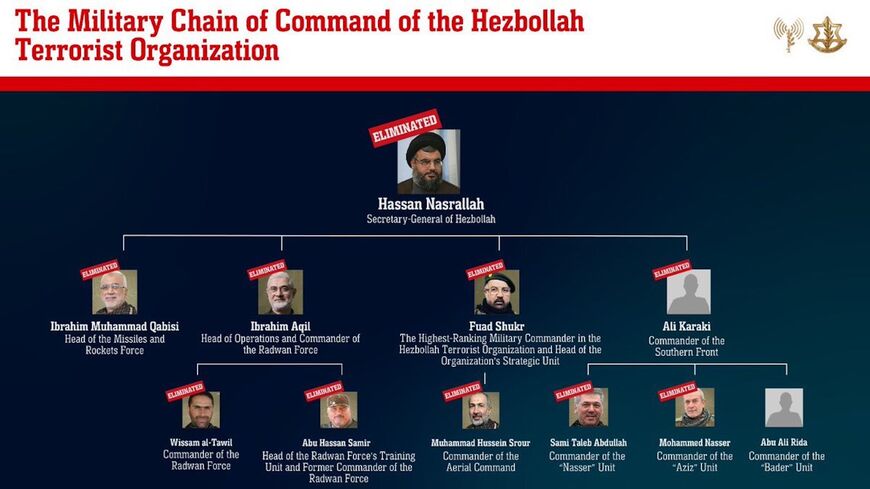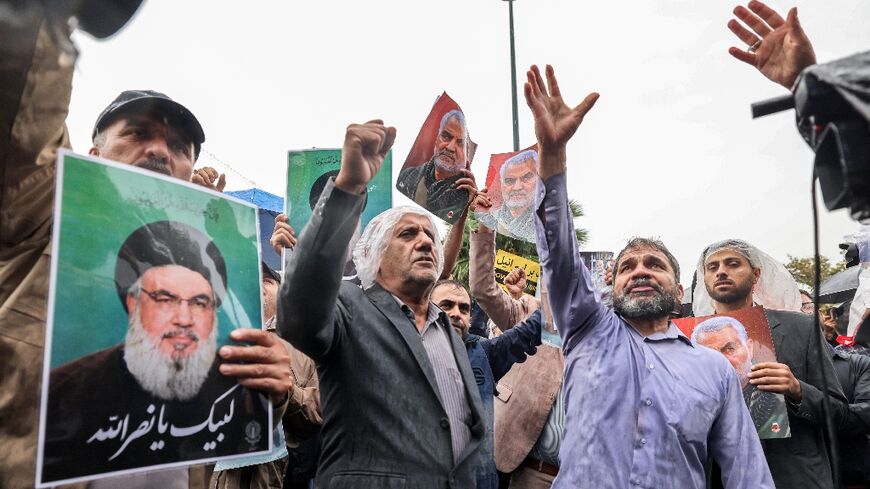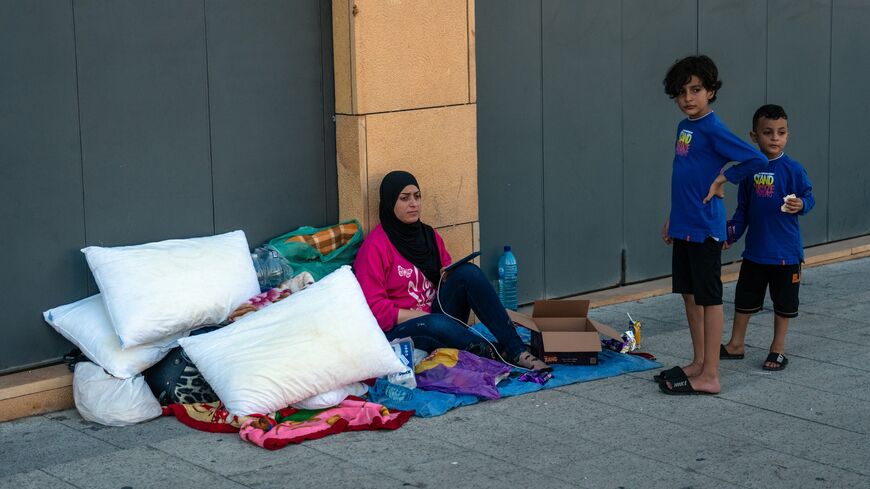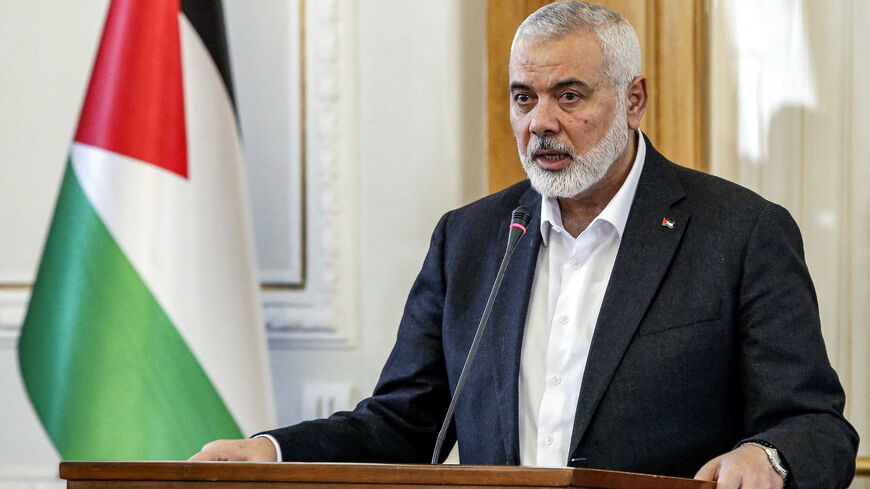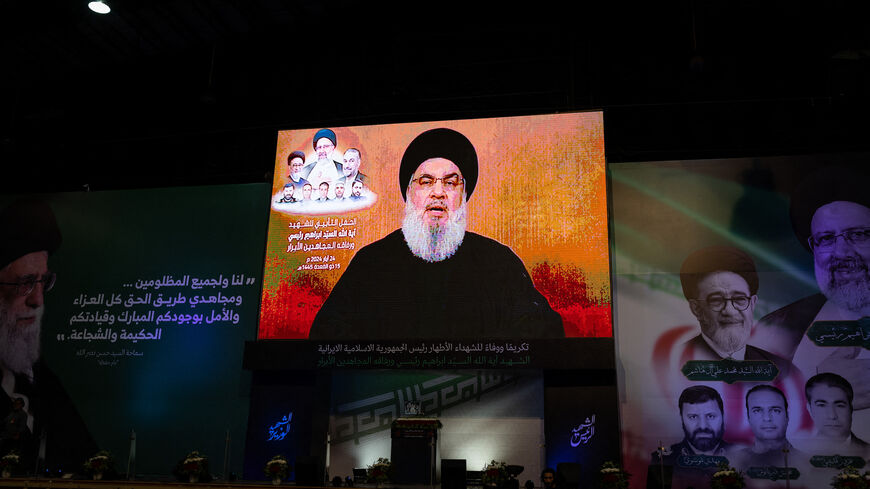From Yemen to Turkey, Mideast reacts to death of Hezbollah's Nasrallah
Leaders and groups in the Middle East have reacted to the death of Hezbollah leader Hassan Nasrallah, who was killed Friday in an Israeli airstrike on Beirut.

Hezbollah Secretary-General Hassan Nasrallah was killed on Friday in an Israeli airstrike targeting the southern suburbs of Beirut.
The Israeli military dropped an estimated 80 bombs — including “bunker-busting” munitions aimed at Hezbollah’s headquarters, where Israeli intelligence reported Nasrallah and other senior officials were meeting. The attack killed at least 11 people and injured 108, according to Lebanon’s Health Ministry.
The deputy commander of Iran's Islamic Revolutionary Guard Corps, Abbas Nilforoushan, was also killed in the strikes, Iranian state media reported on Saturday. Nilforoushan served as the IRGC’s deputy of operations and in 2022 was sanctioned by the US for suppression of protests in Iran.
In a statement, Hezbollah mourned Nasrallah as a “brave martyr,” praising his nearly three decades of leadership.
The Israeli military named the operation New Order and described it as a decisive blow to the group’s command structure, which has been severely weakened by recent Israeli strikes.
“The Israeli military carried out one of the most important countermeasures in the history of the State of Israel. This operation closed a long-standing reckoning with the master murderer Nasrallah," Israeli Defense Minister Yoav Gallant stated.
Iran’s Supreme Leader Ayatollah Ali Khamenei reacted swiftly with a post on his official website Saturday that condemned the assassination and urged Muslims to stand with Hezbollah in “confronting the usurping and wicked regime [of Israel].”
“The fate of this region will be determined by the forces of resistance,” Khamenei said. Hezbollah has acted as a key proxy group for Iran in the region over the past decade.
Hamas also denounced the attack, calling it a “cowardly act of terrorism” and expressing solidarity with Hezbollah and the Lebanese people. “This massacre shows once again the bloodiness and brutality of the Zionist regime,” Hamas said in a statement.
Yemen’s Houthis similarly mourned Nasrallah, saying that his death “will increase the strength of sacrifice … determination and continuity.”
Lebanon's caretaker prime minister, Najib Mikati, announced a three-day mourning period in Lebanon while speaking at an emergency cabinet meeting he convened on Saturday. Mikati told the cabinet that "danger is threatening" Lebanon.
Former Lebanese President Michel Aoun expressed sorrow over Nasrallah’s death, saying, “Lebanon loses a distinguished and honest leader who led the national resistance on the paths of victory and liberation. He was faithful to his promise and loyal to his people who reciprocated his love, trust and commitment.”
“I see that the dangers our country is witnessing as a result of the ongoing Israeli aggression require rising to the highest level of national solidarity that protects and fortifies our unity,” Aoun wrote on X.
Turkish President Recep Tayyip Erdogan also condemned Israel’s actions following the assassination, though he did not mention Nasrallah by name. "The Israeli government is becoming more and more reckless as it is pampered by the powers that provide arms and ammunition for its massacres; it is defying all humanity, human values and international law," Erdogan said in a statement on X.
Both Iraq and Syria declared on Saturday three days of public mourning for Nasrallah. In a post on X from Iraqi Prime Minister Mohammed Shia al-Sudani’s office, he called Israel’s assassination of Nasrallah a “criminal act” that crossed “all red lines.”
Meanwhile, videos circulating on social media showed Syrians in rebel-held areas celebrating Nasrallah’s death. Hezbollah has been an ally of Syria's Assad regime and helped fight the Syrian opposition during the country's civil war, which helped to keep Bashar al-Assad in power.
President Joe Biden, whose administration has denied prior knowledge of Israel's strike on Nasrallah, called his death "a measure of justice for his many victims, including thousands of Americans, Israelis and Lebanese civilians." The US "fully supports Israel’s right to defend itself against Hezbollah, Hamas, the Houthis and any other Iranian-supported terrorist groups," Biden said.
Vice President Kamala Harris released a statement similar to Biden's on Saturday: "Today, Hezbollah’s victims have a measure of justice,” she said.
“I have an unwavering commitment to the security of Israel. I will always support Israel’s right to defend itself against Iran and Iran-backed terrorist groups such as Hezbollah, Hamas, and the Houthis,” Harris added.
The death of Hezbollah’s leader has fueled speculation about potential retaliation from its key backer, Iran — yet Iran has repeatedly signaled that it does not want a wider war. On Saturday, Hezbollah launched an estimated 90 rockets into the western Galilee region of northern Israel, according to the Israeli military.
Israel’s ongoing offensive in Lebanon, including the strike that killed Nasrallah, has killed more than 700 people so far.


